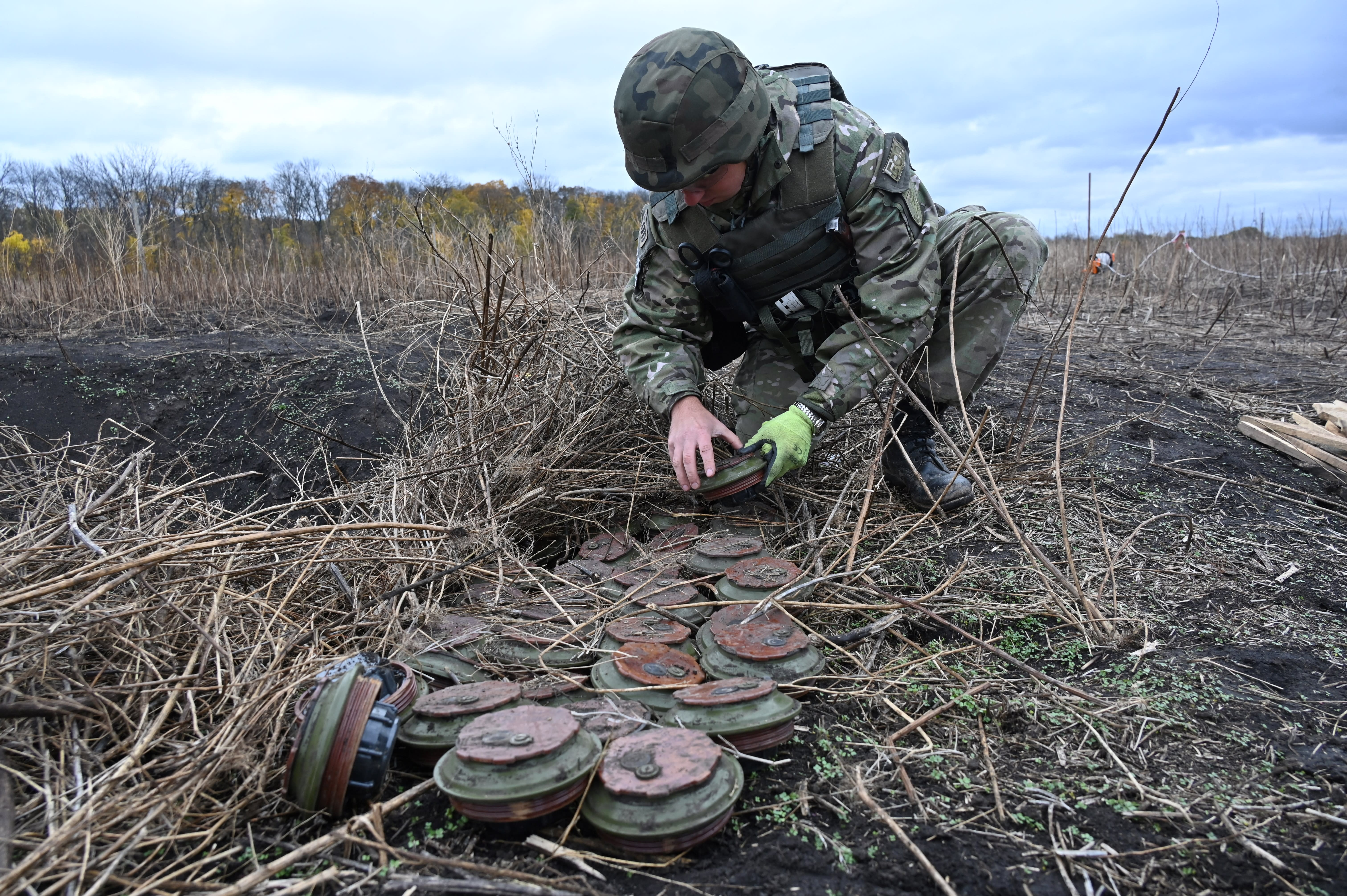Ukraine's Strategic Policy Shift: Exiting the Anti-Landmine Treaty
3 min read

In a historic move that underscores the escalating geopolitical tensions in Eastern Europe, Ukraine has announced its intentions to withdraw from the anti-landmine treaty. This decision marks a pivotal shift in the nation's defense strategy, driven by the urgent need to safeguard its citizens amidst a landscape increasingly marred by landmines. As Ukraine grapples with the aftermath of extended conflicts, this policy redirection highlights the complex balance between international commitments and national security priorities.
Historical Context: The Ottawa Treaty and Its Implications
The Ottawa Treaty, formally known as the Mine Ban Treaty, was established in 1997 with the primary aim of eliminating anti-personnel landmines. It has been ratified by over 160 states, reflecting a global consensus against the use of these indiscriminate weapons. Ukraine became a signatory in 1999, aligning with global efforts to mitigate the humanitarian impact of landmines.
However, the landscape has dramatically shifted since Ukraine's initial commitment to the treaty. Following the annexation of Crimea by Russia in 2014 and the subsequent conflict in the Donbas region, Ukraine has faced a protracted struggle against Russian-backed separatists. This ongoing conflict has resulted in the widespread deployment of landmines, posing significant risks to civilian populations and complicating military operations.
The Dilemma: Balancing Humanitarian Concerns and Security Needs
Ukraine's decision to exit the Ottawa Treaty is not made lightly. The foreign ministry's statement underscores the nation's priority: "to give unconditional priority to the security of its citizens and the defense of the state." This sentiment reflects the harsh realities faced by Ukraine as it navigates the threats posed by both conventional and unconventional warfare tactics.
The presence of landmines in conflict zones presents a dual challenge. On one hand, they serve as a deterrent and protective measure in military strategy. On the other, their indiscriminate nature and long-lasting impact on civilian areas pose severe humanitarian and ethical dilemmas. Ukraine's withdrawal from the treaty suggests a strategic recalibration, opting for immediate security needs over broader humanitarian obligations.
Global Reactions and Potential Implications
Ukraine's departure from the anti-landmine treaty is likely to stir diverse reactions on the global stage. Advocates for the treaty may view this move as a setback in international disarmament efforts. However, it is essential to contextualize Ukraine's decision within its unique security environment, which presents formidable challenges not faced by many treaty signatories.
Moreover, this decision could set a precedent for other nations facing similar security dilemmas, potentially influencing their stance on international arms agreements. It raises pivotal questions about the efficacy and adaptability of existing treaties in addressing contemporary security threats, particularly in regions experiencing prolonged conflicts.
Conclusion: Navigating an Uncertain Future
As Ukraine steps away from the anti-landmine treaty, it embarks on a path fraught with both opportunities and challenges. This decision reflects a broader trend where national security imperatives increasingly conflict with international disarmament norms. The move underscores the need for adaptive strategies that accommodate the evolving nature of warfare while striving to uphold humanitarian principles.
Ultimately, Ukraine's strategic shift invites a broader discourse on how international frameworks can evolve to address the complexities of modern conflicts. As the global community watches these developments unfold, the balance between maintaining security and adhering to humanitarian norms remains a critical consideration for policymakers worldwide.
Source: Kyiv plans exit from anti-landmine treaty as mines litter Ukraine
